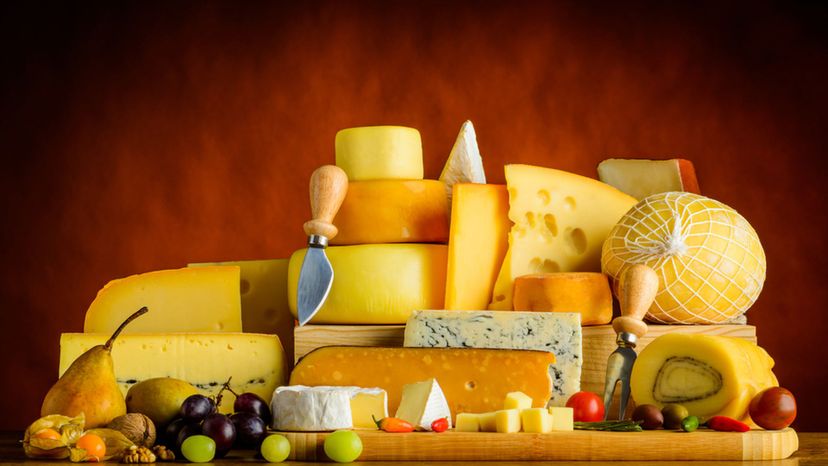
About This Quiz
Cheese is one of the most popular foods of all time. Provolone, parmesan, gouda, feta, the list goes on. Some are orange, some are white, some are even blue. Can you identify the type of cheese from a single image? Prove it!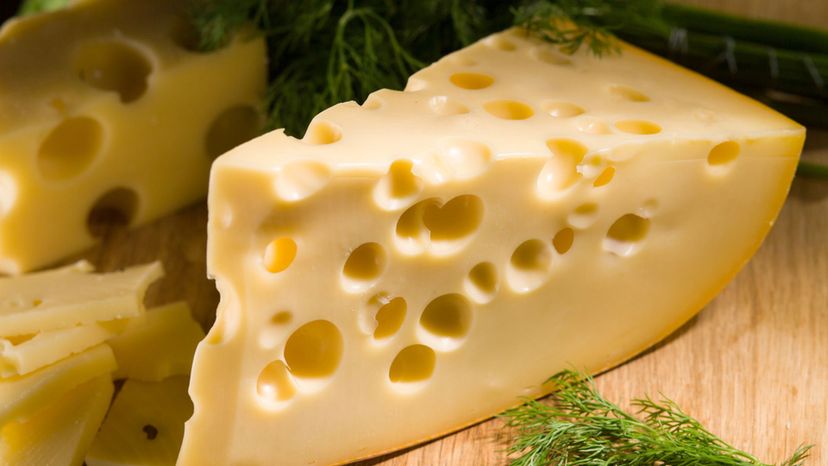
In 2002 the USDA decided to reduce the size for the holes in Swiss cheese by 50% because modern slicing machines had problems slicing the Swiss with its larger holes. During the manufacturing process, a particular bacteria that produces the flavor and texture of Swiss also produces carbon dioxide gas as its by product, which produces the holes.
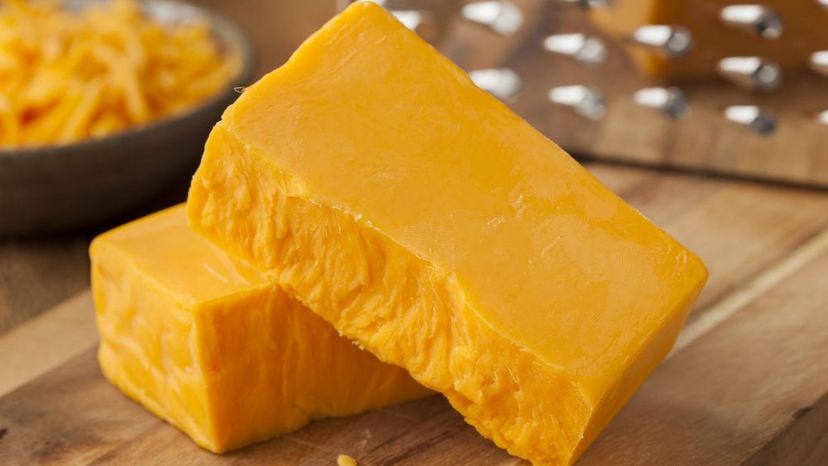
A giant wheel of cheddar was given to Queen Victoria (1837-1901) as a wedding gift. It weighed over 1,000 pounds, massively bigger than a normal Cheddar wheel, which weighs between 60-75 pounds. Cheshire cheese is the oldest cheddar type cheese and the oldest named cheese in Britain.
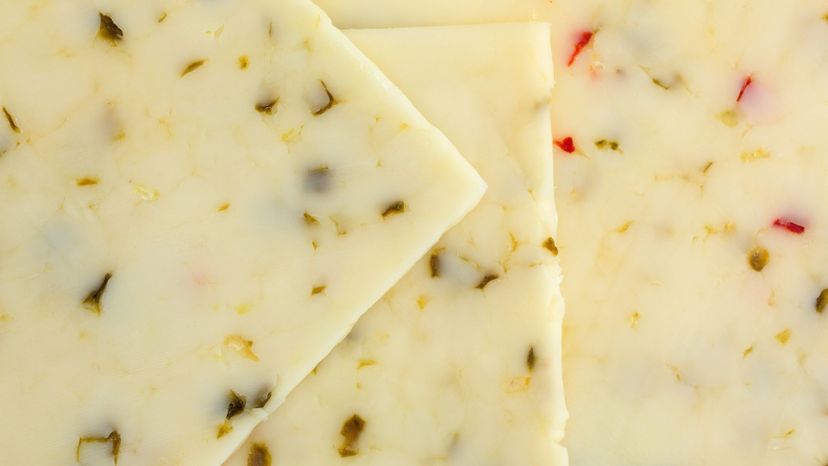
Pepper Jack is a derivative of Monterey Jack, the original "American†cheese. As its name suggests, the cheese is flavored with different spices, like sweet peppers, rosemary, habañero chilies, garlic, and spicy jalapeños, all of which are added for an extra kick. Pepper jack goes well with jalapeño peppers, melons, grapes, pickled vegetables, and olives.
Advertisement
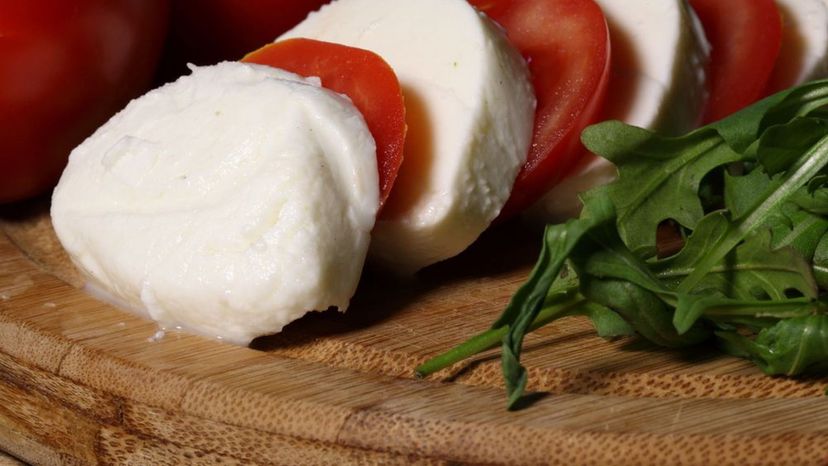
The Mozzarella most people know and love in America isn't considered authentic by Italian standards. Even so, it is the most popular cheese in the United States. The USDA estimates that per-capita, mozzarella consumption comes to 11.5 pounds a year. As one of the freshest cheeses in the world, it should be eaten as soon as possible after it's made.
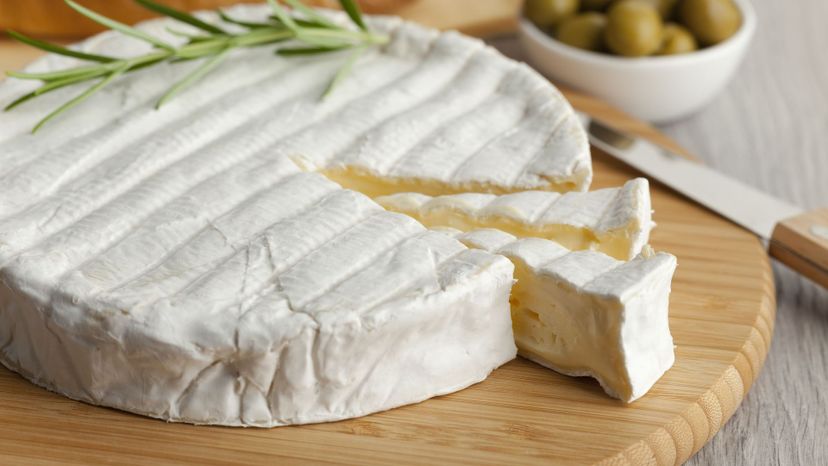
Cheese lovers will tell you to never, ever use plastic wrap, but a little plastic is key to protecting Brie's creamy interior. Wrap the cut side in plastic and then put it in a box to preserve the rind. Brie is a textbook bloomy cheese, and you can eat the rind. There are three main types of rinds: bloomy, washed, and natural.
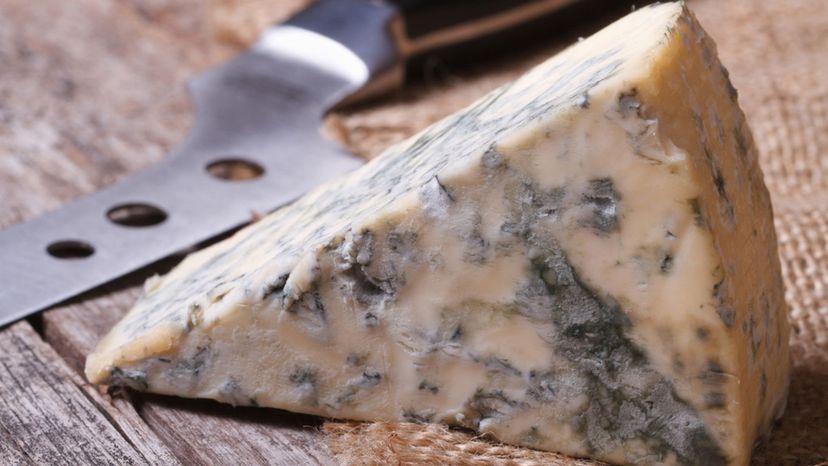
The first American blue cheese plant was founded by Felix Frederickson in 1936 in Faribault, Minnesota. Roquefort cheese is a specific type of bleu cheese that is made in the south of France. Other bleu/blue cheeses are Stilton (England), Gorgonzola (Italy), Danablu (Denmark), and Maytag Blue Cheese (US).
Advertisement
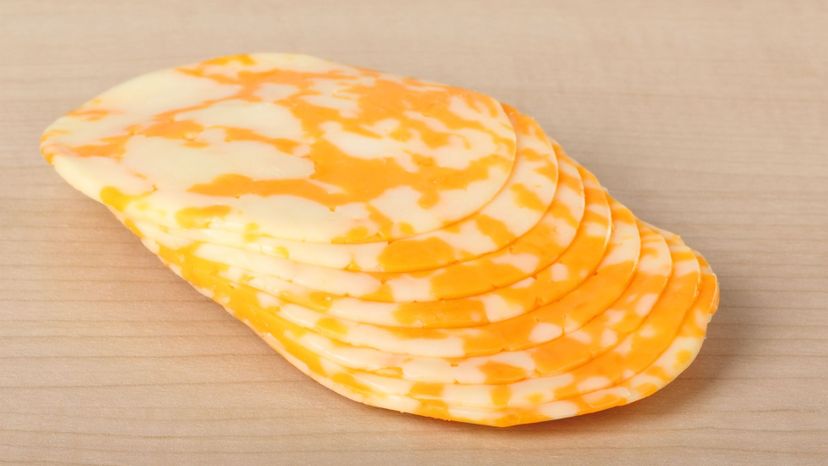
Colby is a Wisconsin Original cheese, first crafted in the central Wisconsin town of Colby back in 1885 by Joseph F. Steinwand. Wisconsin is home to 38 manufacturers of colby cheese and has 12 Master Cheesemakers of colby. Wisconsin makes 40 different types and styles of colby, including cranberry, dill, garlic & onion, jalapeño, olive & chive, taco, smoked and more. Colby-Jack is a combo of colby and Monterey Jack.
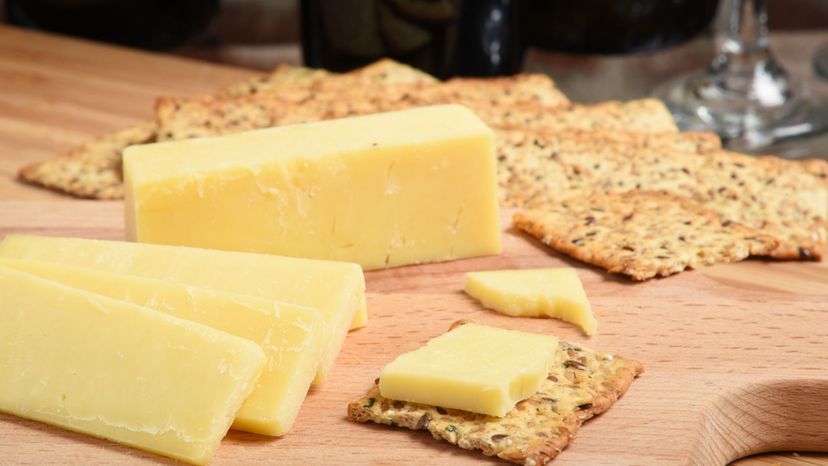
Almost 90% of all cheese sold in the United States is classified as a cheddar type cheese. White Cheddar Cheese does not attract the brown mouse, grey mouse, or white mouse. However, it will attract the Relic Hunter Mouse. Pizza Hut is the largest cheese-using fast food giant; it uses approximately 300 million pounds of cheese annually, mostly on pizza.
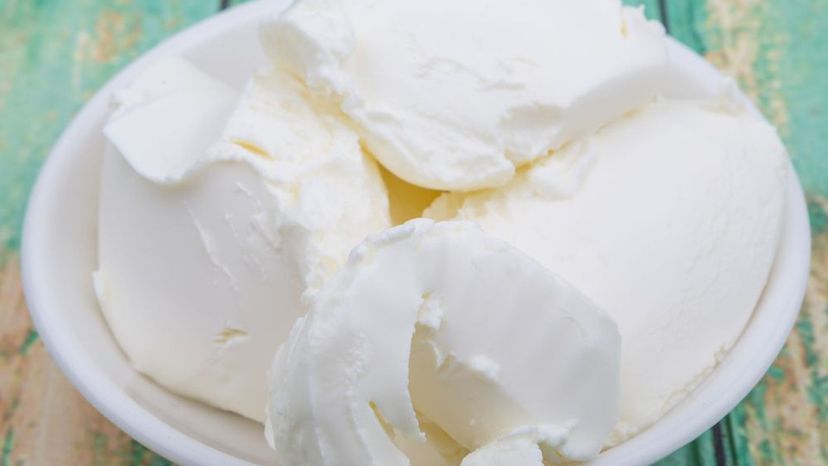
Mascarpone is a type of cheese that is similar to cream cheese in terms of taste and texture. This cheese is often used in traditional Italian desserts, such as tiramisu, because it's creamy and has a mild taste. The primary vitamin present in more than just a trace amount in mascarpone is vitamin A, which keeps your eyes healthy and helps you see in low light.
Advertisement
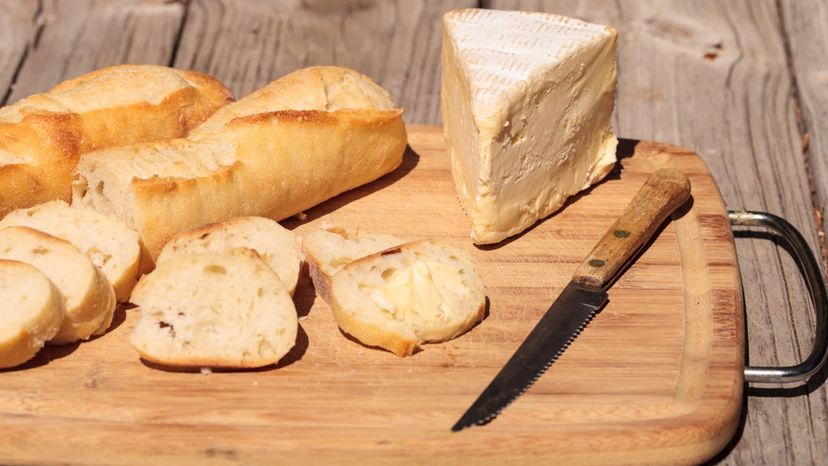
Both double- and triple-cream cheeses have extra cream added before the curd is formed. According to French law, a double-crème cheese has between 60-75% butterfat. Double- and triple-cream cheeses are usually young, with high levels of moisture. Triple-crème cheeses showed up about 75 years after Petit Suisse was introduced. These uber-creamy cheeses also found their origins in Normandy.
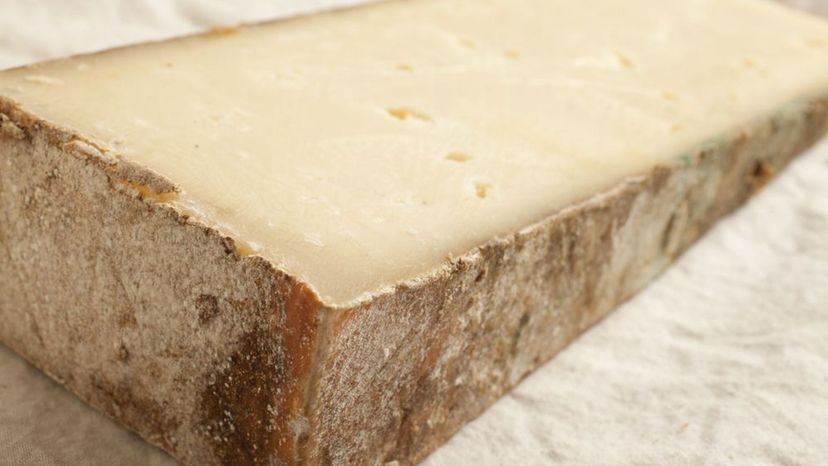
Fontina cheese, Fontina Val d'Aosta, is one of Italy's great cheeses. It has been made in the Aosta Valley in the Alps since the 12th century. Young fontina is a table cheese, but it is also used in cooking. Mature fontina is a hard cheese, useful for grating. Fontina is an Italian cow's milk cheese, about 45% milkfat.
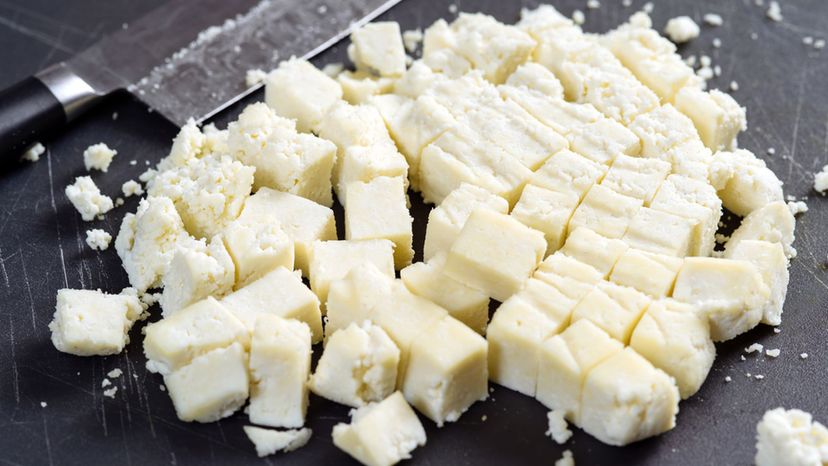
Paneer is quite useful in preventing deadly diseases, such as cancer, by preventing the growth of cancer-causing cells in the body. It also protects against heart disease by lowering the fat deposition in the arteries. Paneer can be eaten raw as well, with just a sprinkle of black pepper and salt.
Advertisement
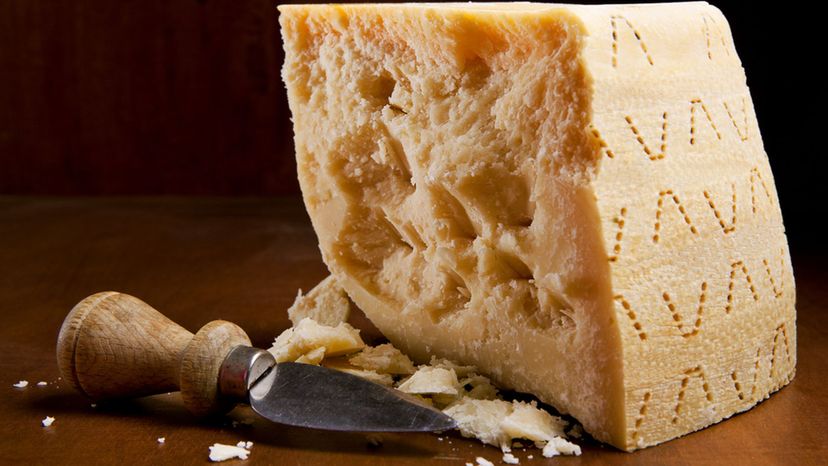
Parmesan - Parmigiano in Italian - is the cheese which boasts the highest number of imitations worldwide. In 2012, a disastrous earthquake hit the region of Emilia and thousands of Parmesan wheels were destroyed: thanks to the web, the dairies managed to sell the cheese at a lower price, which saved one of Italy's most flourishing food industries from bankruptcy.
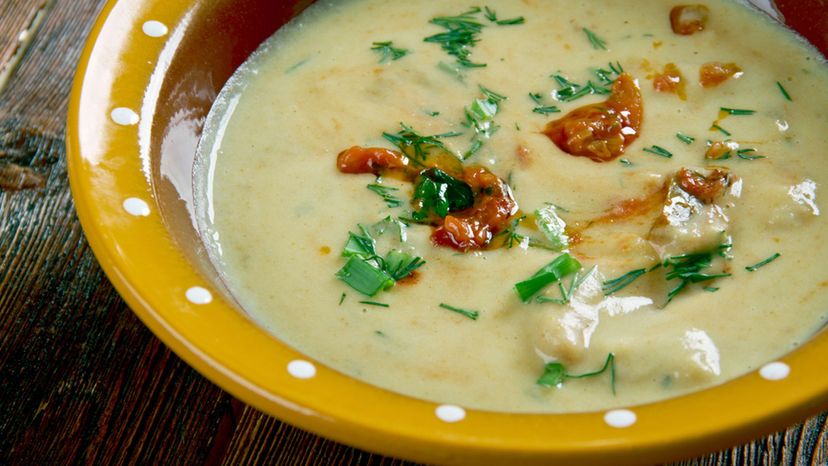
Queso Jalapeño is a cow's milk cheese with real jalapeño peppers. It is a well-balanced cheese with an extra zesty pepper flavor and a creamy feel. It can be shredded, melted, or pulled in strings for use in spicy dishes such as enchiladas, rellenos, tacos, nachos, scrambled eggs, and spicy fundido with longaniza.
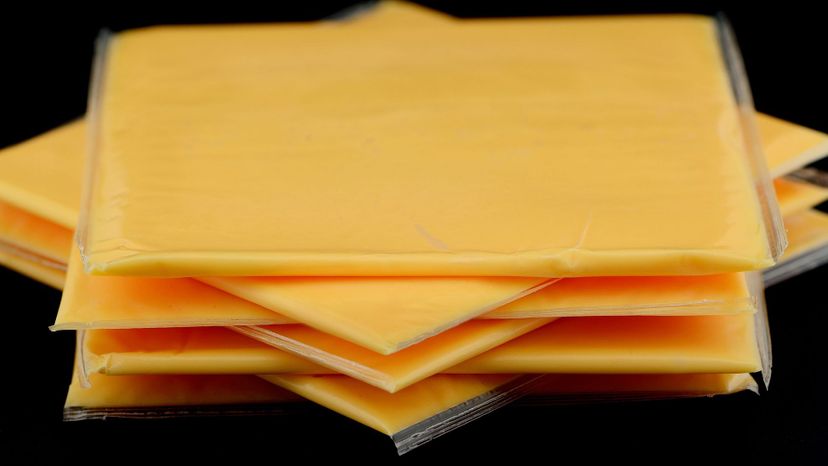
The most popular processed cheese in the U.S. is American cheese. In most people's minds, the term means a smooth, mild flavored cheese. Processed cheese was invented over 100 years ago in Switzerland, but an American, James L. Kraft, manufactured the first commercially available sliced processed cheese, shortly after World War II.
Advertisement
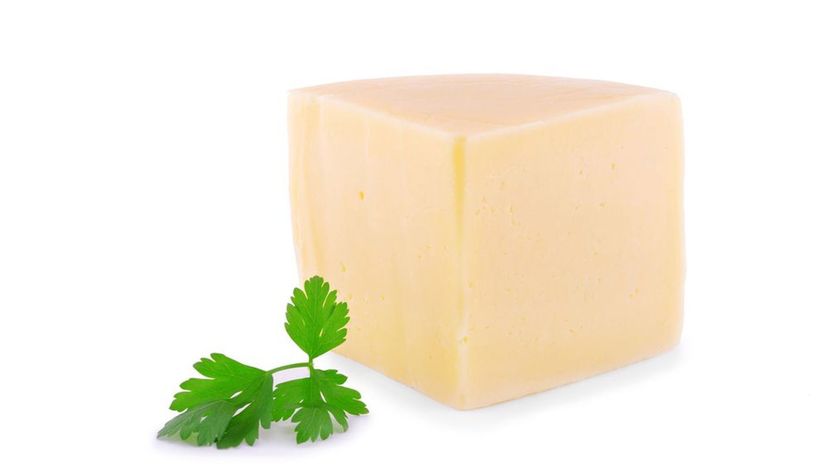
Monterey Jack cheese originates in Monterey, California, which is the source of its name. In its earliest form, Monterey Jack was made by the Mexican Franciscan friars during the 19th century. Due to Monterey Jack having a low content of tyramine, an organic compound associated with headaches, it is one of the few cheeses that safe to eat for migraine sufferers.
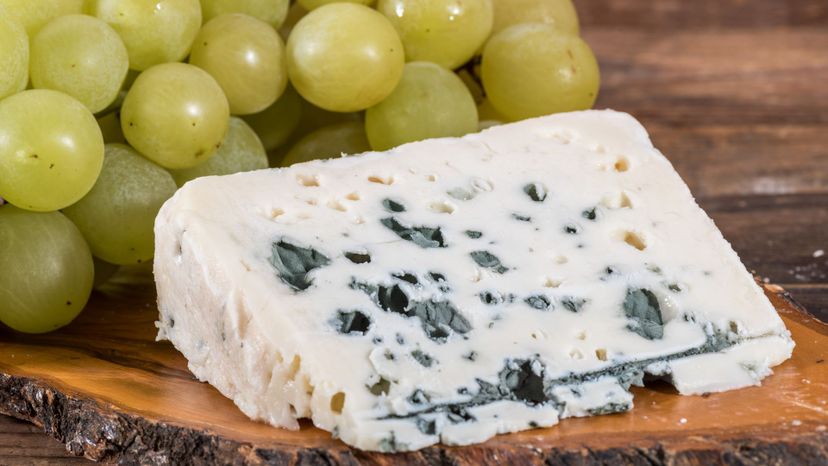
Roquefort is a blue cheese made from sheep's milk. It originated in the south of France.
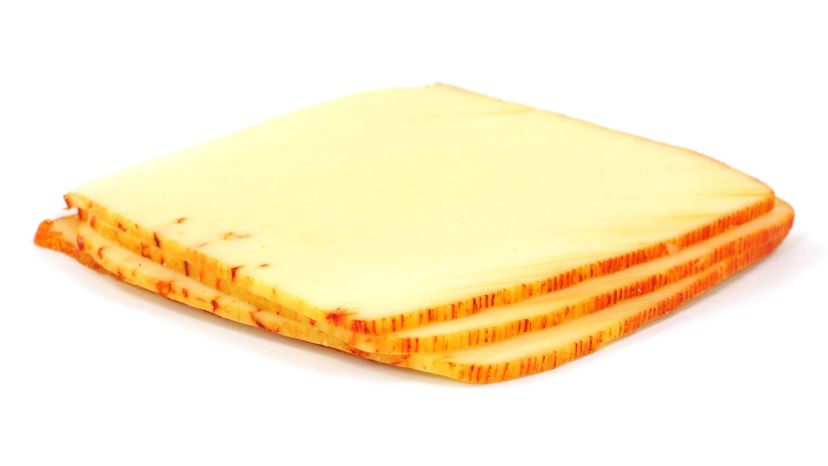
True Muenster cheese originated in a monastery in the Alsace region of France, sometime around the 7th century, by either Irish or Italian monks. The muenster cheese that is made in the U.S. (and other countries) is a very bland cheese which does not resemble the Muenster made in France and Germany at all.
Advertisement

Crema Agria is a Mexican style sour cream which is prepared by fermenting fresh pasteurized cream until it is thick and stiff. Its tangy flavor and rich soft texture make it an excellent candidate for savory dishes, dips and garnishes. It is also commonly used in sauces, soups, desserts, candies, and casseroles.
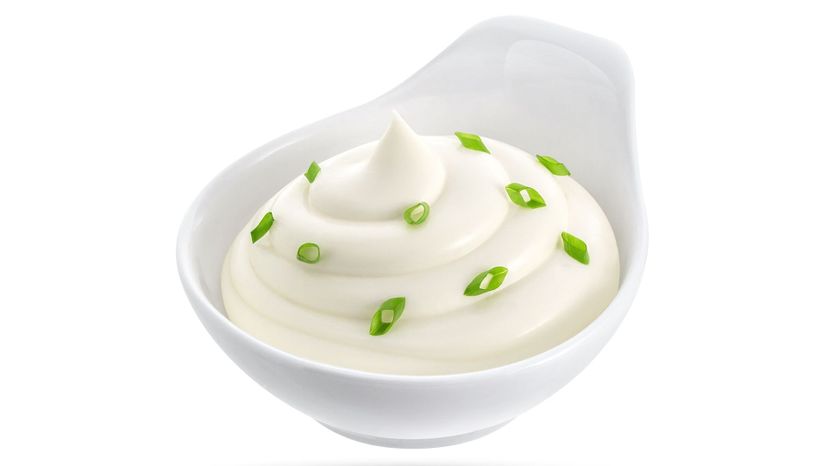
Cream Mexicana is a soured cultured cream (like sour cream) that can be flavored or sweetened and whipped like whipped cream. It is also like crème fraîche, but you can whip Crema Mexicana into peaks just like whipped cream.
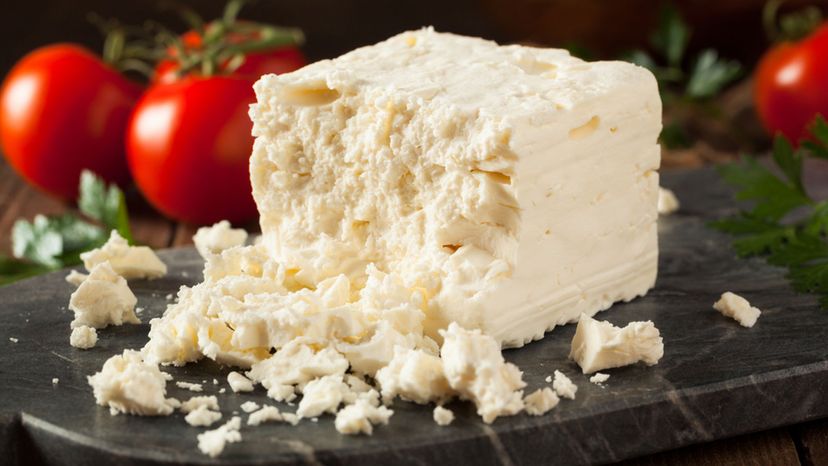
Feta originated in Greece. It gets it's distinct sour flavor from a mix of sheep's and goat's milk, as well as from the fermentation process.
Advertisement
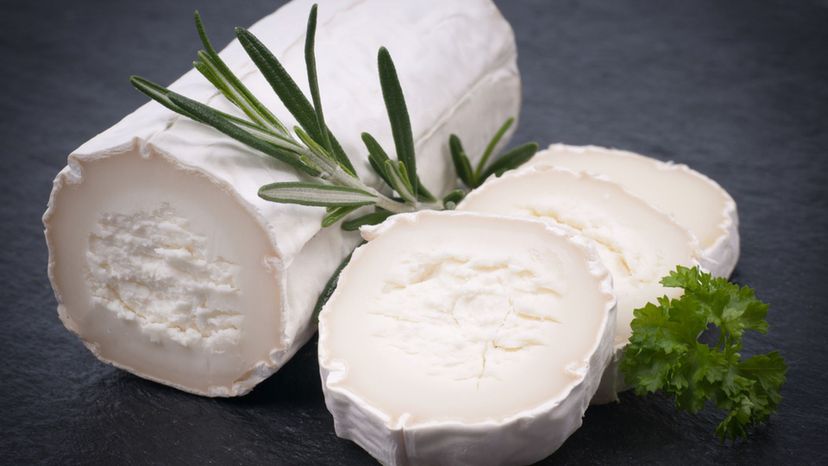
Goat cheese takes around three days to make and changes in appearance as it is processed. It also becomes stronger tasting as time goes by. Goats normally produce milk for four to five years, although some goats can be productive for longer. Goats start giving milk around two years old and will produce 12 to 16 pounds of milk a day.
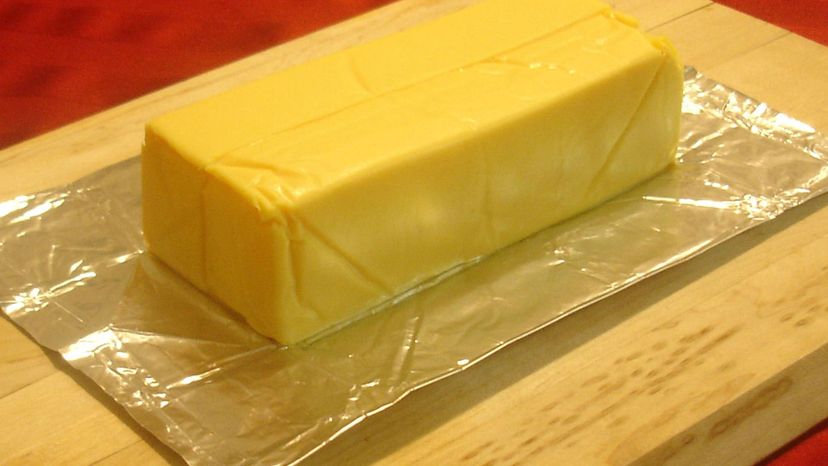
Velveeta was originally marketed as a healthy product. By adding whey back into its mixture, Kraft reasoned, they could bump up Velveeta's nutritional value. It even had the American Medical Association's stamp of approval. Early recipes included pouring it over toasted peanut butter sandwiches.
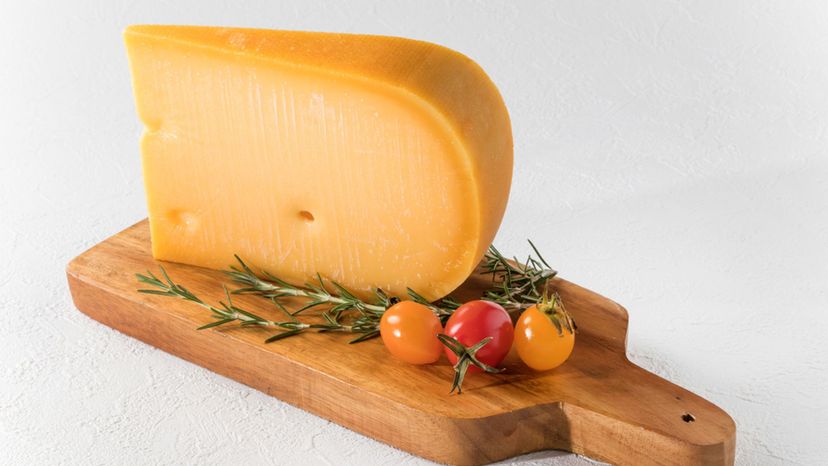
Gouda is a Dutch cheese, named after the city of Gouda in the Netherlands. It is one of the most popular cheeses in the world, accounting for 50 to 60 percent of the world's cheese consumption. The original cheese markets in Gouda are some of the last standing commercial cheese markets in the Netherlands.
Advertisement
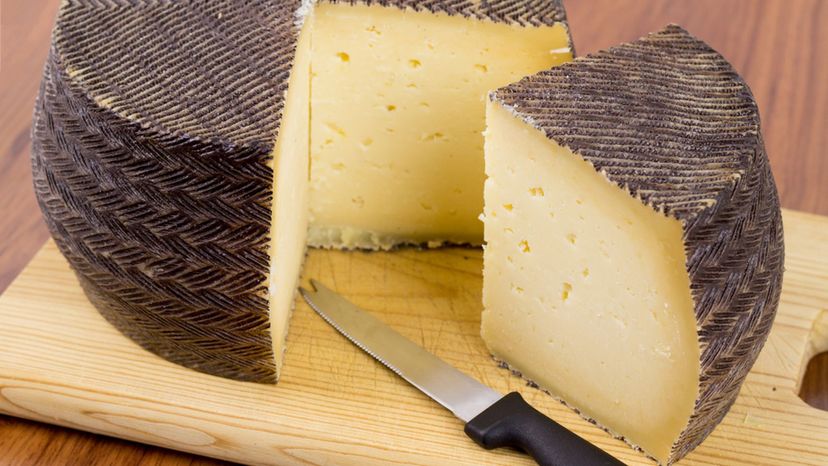
Manchego cheese gets its name from the region where it was made, La Mancha, Spain. Real Manchego cheese is aged for a minimum of 60 days and some are aged up to 2 years!
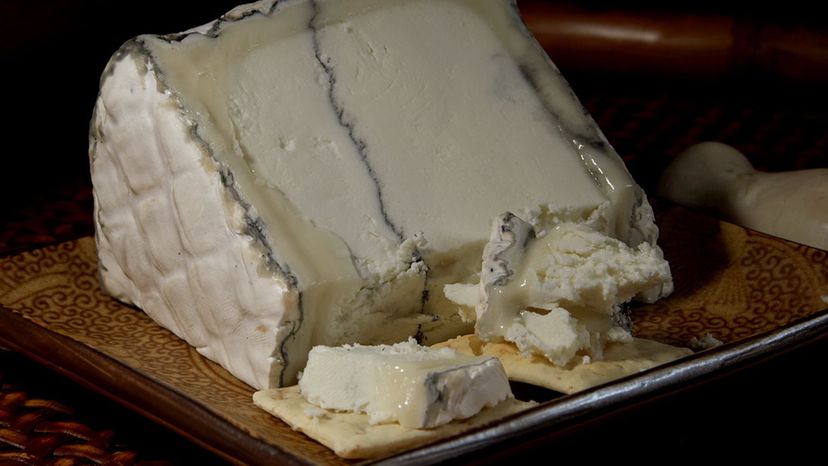
Humboldt Fog is a goat's milk cheese delivered by Cypress Grove Chevre, of Arcata, California, in Humboldt County. This cheese ripens from the outside to the center, resulting in a fresh goat cheese center surrounded by a pungent runny shell. The cheese is creamy, light, powdery, slightly lemony, and mildly goaty.
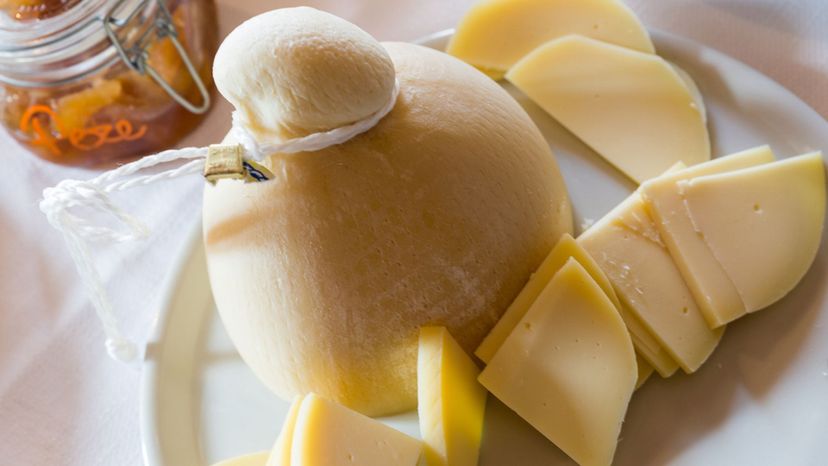
Provolone is an Italian cheese made from cow's milk. Its origins are in Southern Italy. This cheese goes along with full-bodied and aged red wines. It should be served with hot chutneys, homemade bread, or flatbread. Provolone is high in calcium and protein, but also super high in sodium.
Advertisement
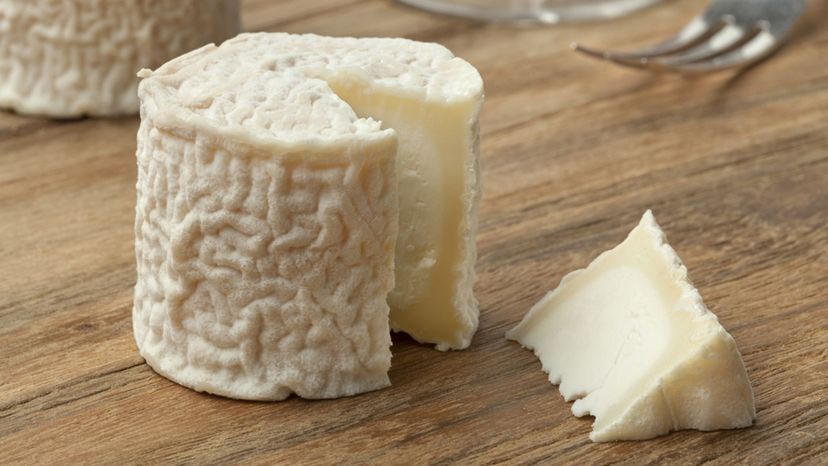
"Chèvre†is a French term that means goat's cheese. Goat's milk cheese contains less lactose than cow's milk cheese, so it is easier to digest. It is also lower in sodium and cholesterol than cow's milk cheese. Goat's milk cheese is high in vitamins B and D, as well as Potassium.
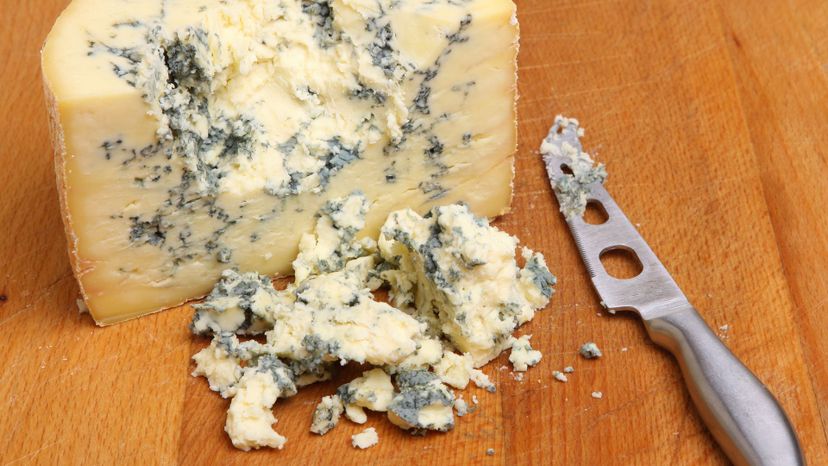
There are only six dairies in the world licensed to make Blue Stilton cheese. Stilton is a "protected name" cheese and by law can only be made in the three counties of Derbyshire, Leicestershire, and Nottinghamshire. Over 1 million Stilton cheeses are made each year. More than 10% of Stilton is exported to some 40 countries world-wide.
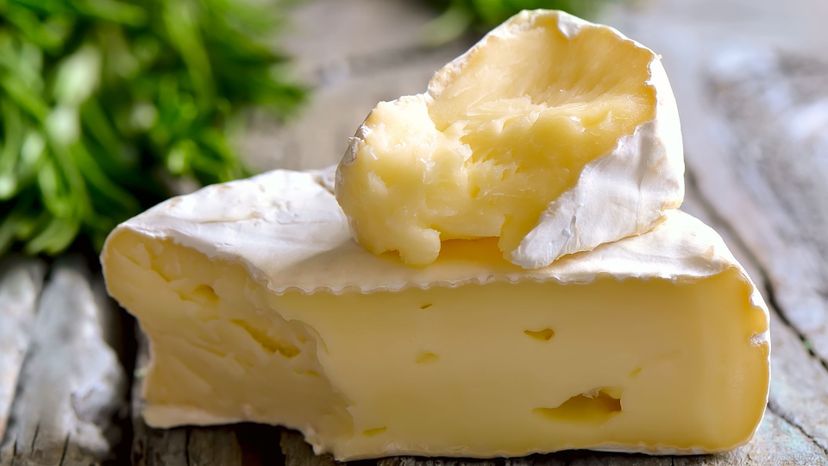
Camembert is said to have been invented in the Normandy village of Camembert in France, in the late 1700s, by a French farmer named Marie Harel. The cheese was a common addition to French military ration packs during World War I. The initial process for creating camembert involves solidifying a mix of warm cow's milk, rennet, and mesophilic bacteria.
Advertisement
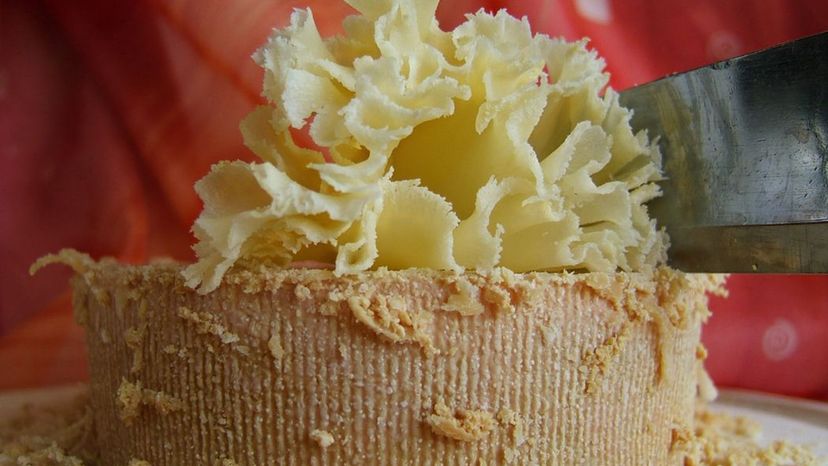
Tête de Moine originated in Switzerland and is cut using a special device called a Girolle. This device shaves off thin, curly, flower-like pieces instead of regular slices. It is eaten this way due to its strong smell and taste.
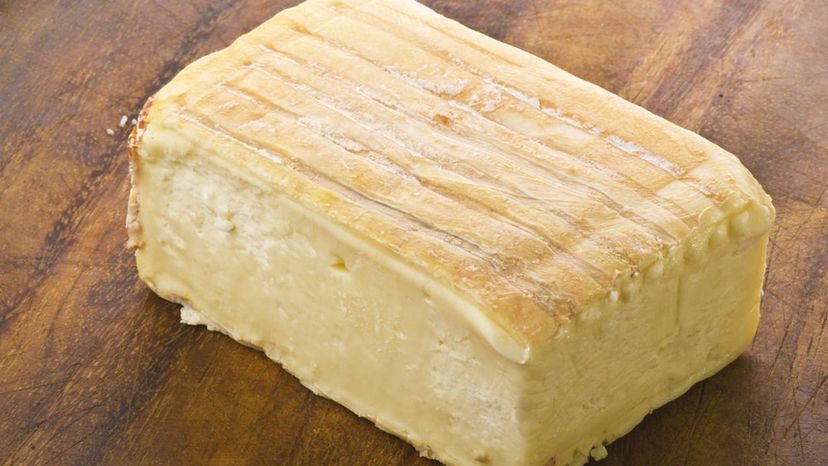
Taleggio is spreadable, much like Brie. Its strong aroma and tangy taste make it the perfect cheese for your next wine and cheese night!
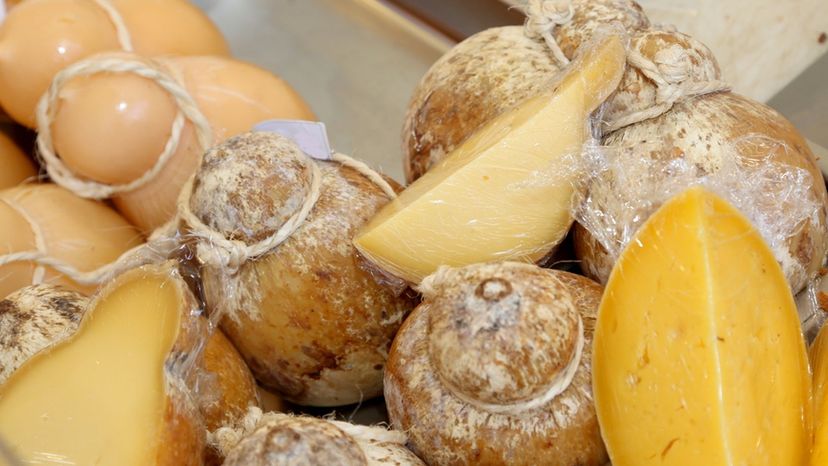
Caciocavallo is made throughout Southern Italy. It is a stretchy curd cheese that is made from of sheep's or cow's milk.
Advertisement
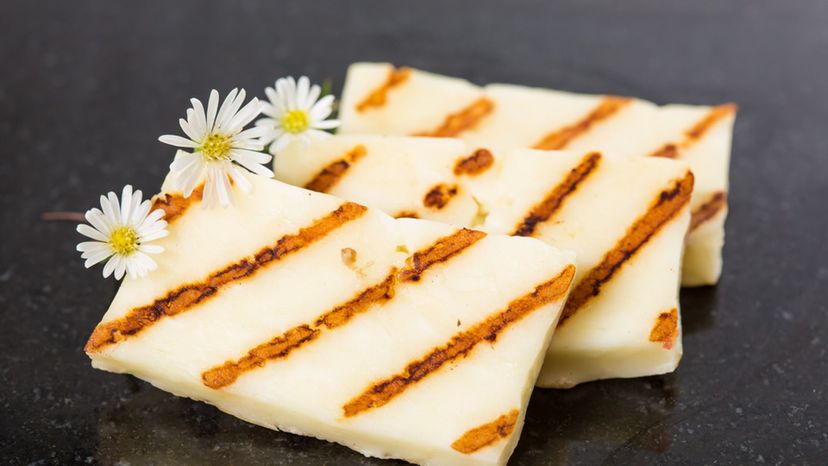
Halloumi, which is also called hellim, is a Turkish, Greek, and Arabic cheese. It is a Cypriot semi-hard, unripened brined cheese, made from a mixture of goat's and sheep's milk, and sometimes cow's milk. Halloumi cheese originated in Cyprus in the Medieval Byzantine period.
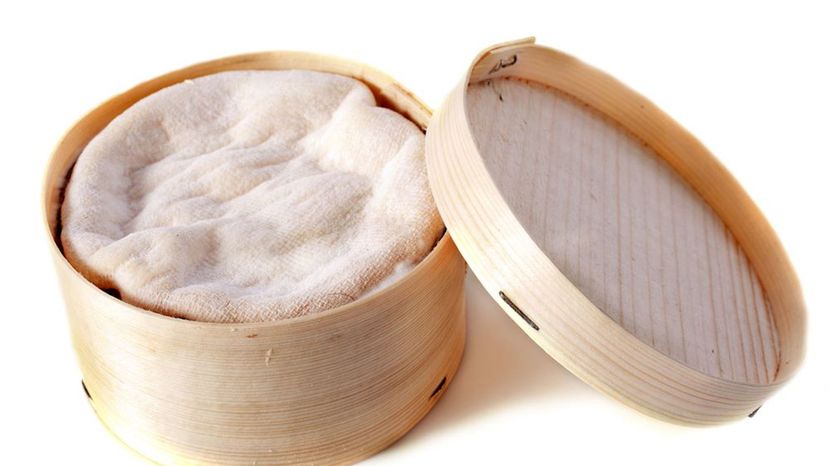
The history of making Vacherin dates back to around 200 years ago. However, since 1981 it has been controlled officially. Swiss people call this soft cheese Vacherin du Mont d'Or, and in France it is called Vacherin du Haut Doubs. It comes in various shapes, enclosed with a strip of spruce bark.
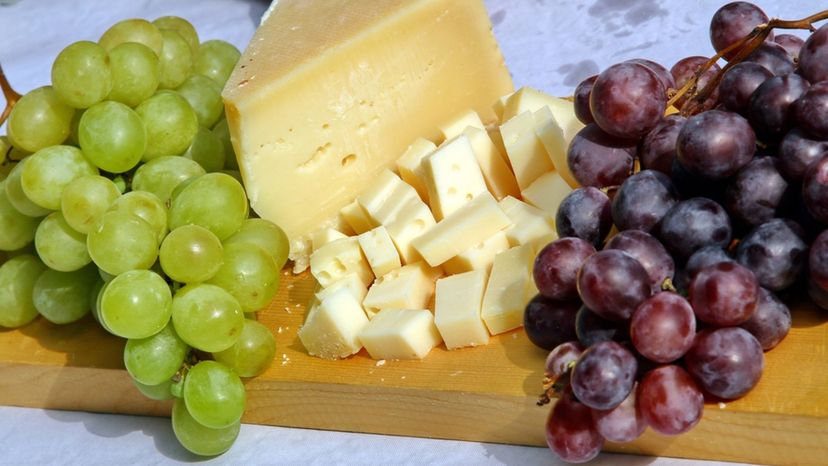
Asiago is a pungent, semi-firm to hard Italian cheese, originally made from sheep's milk. It is now frequently made with cow's milk. Asiago originates in the village of the Italian provence of Vicenza. The production of Asiago spread out of the immediate region as a result of several wars that occurred in the area.
Advertisement
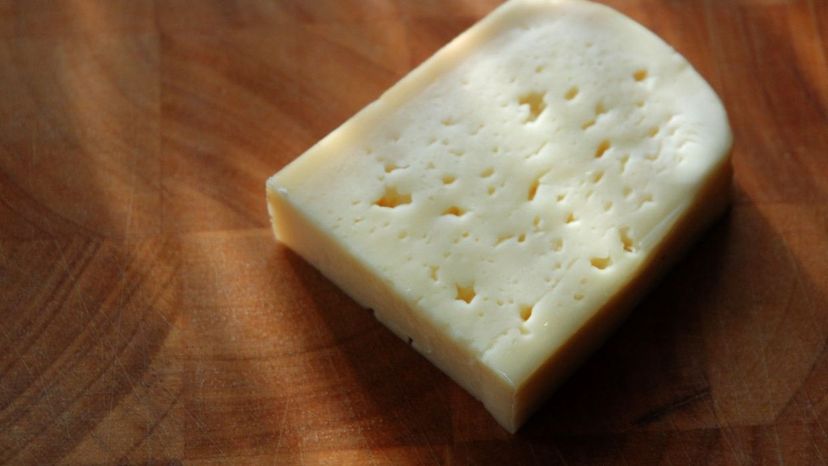
Esrom, which is also called Danish Port Salut cheese. is a Trappist-style traditional semi-soft cheese made from cow's milk. The cheese is named after an abbey where Cistercian monks first made it in the 12th century. The recipe was rediscovered in the 1930s and since then has become incredibly popular. The bold flavors of this cheese go well with dark beers and red wines.
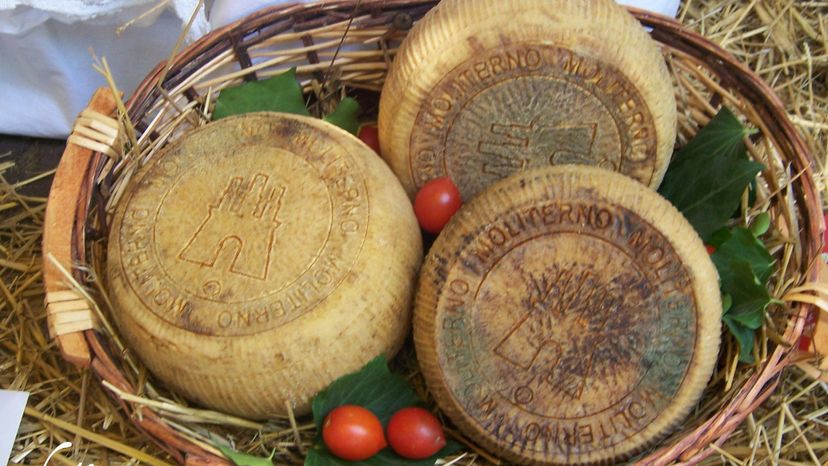
Canestrato di Moliterno is a hard Italian pecorino cheese made from sheep's milk and goat's milk in the commune of Moliterno. The name comes from the Latin word "mulcternum,†which means a place where animals are milked and the milk is allowed to coagulate. The cheese needs at least 60 days of ripening, after which it is sold in cylindrical shapes.
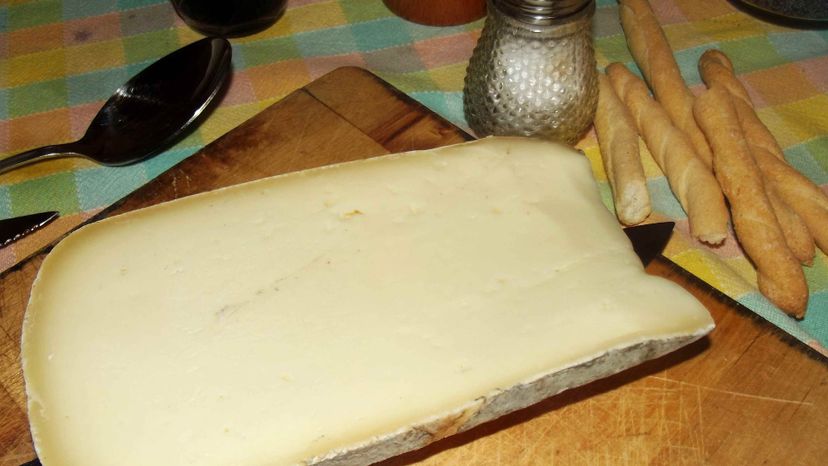
This cheese comes from Italy and is semi-hard. It is protected by the DOP which ensures the highest quality.
Advertisement
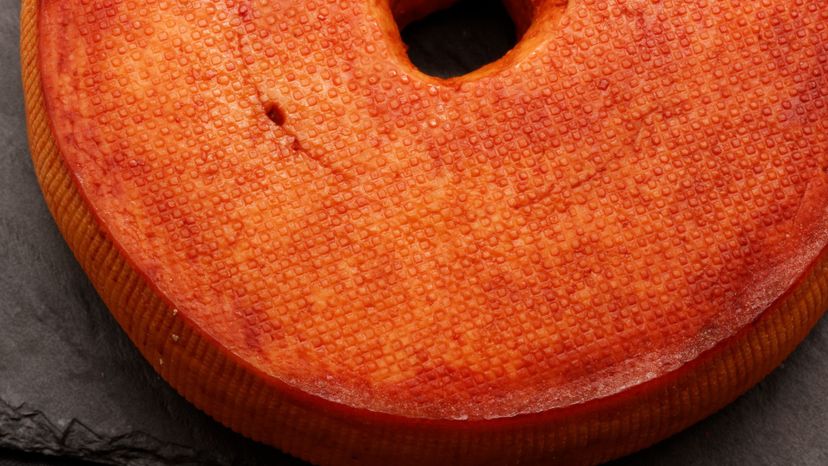
Murol is shaped to resemble a donut, and it is named after a village in the Auvergne region of France. It is related to Saint-Nectaire cheese. Murol has an ivory white smooth paste and a pale orange rind washed with beer and chilies.
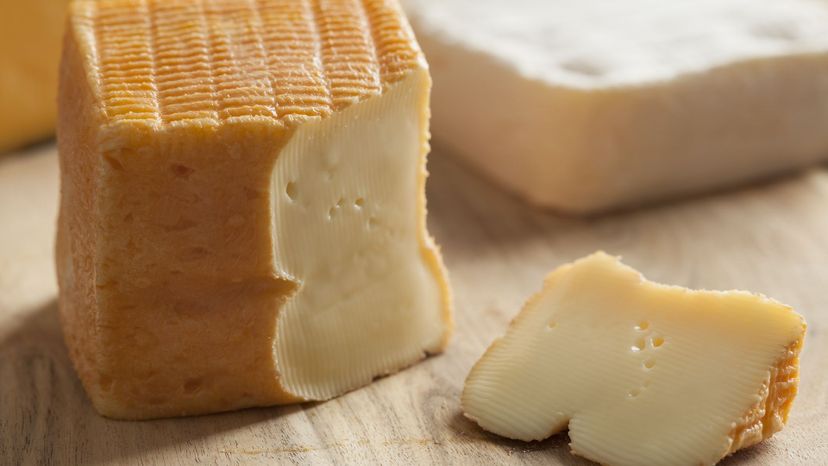
Limburger cheese is infamous for its strong odor and pungent flavor. At first, Limburger cheese is crumbly like feta, but after three months, it becomes spreadable and has developed its signature pungent smell. Swiss immigrants in Green County, Wisconsin, pioneered this cheese back in 1840. Rudolph Benkert began producing the first Limburger cheese in 1867 at home.
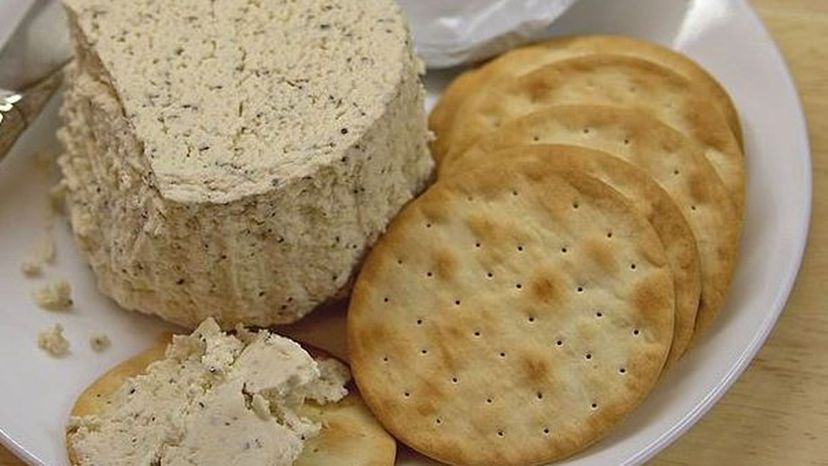
Boursin is a creamy, spreadable brand of Gournay cheese, invented by Francois Boursin in 1957. After the acquisition of the company by Groupe Bel, production started in the United States for North American distribution. Even though Boursin is available today in more than 30 countries, it has achieved maximum popularity in France.
Advertisement
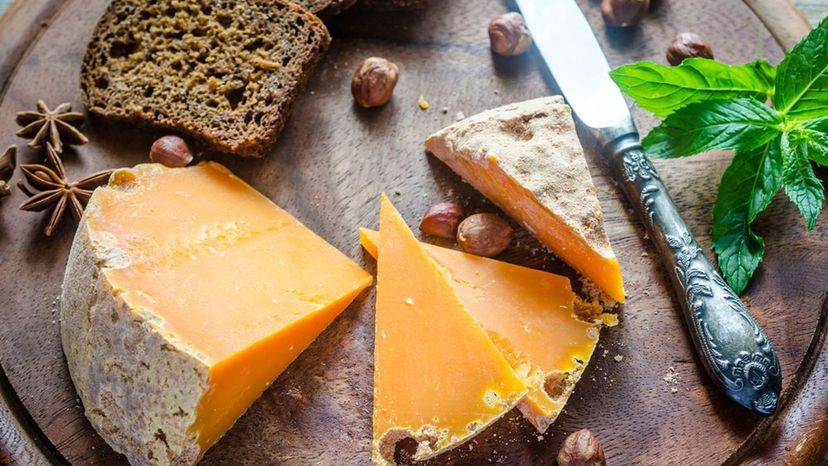
Traditionally produced in Lille, France, Mimolette has a distinct orange hue. It gets it's coloring from a spice called Annatto.
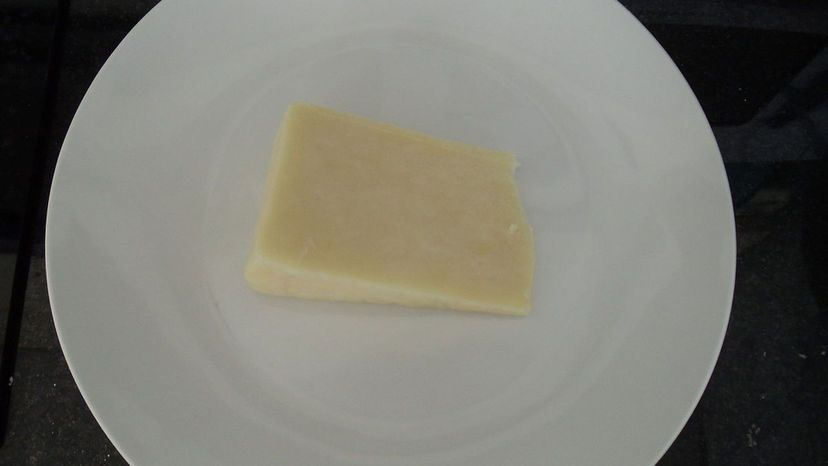
Duddleswell is a high-fat sheep's cheese made at the High Weald Dairy in West Sussex, United Kingdom. Duddleswell has a sweet, caramel tang, accentuated by hints of Brazilian nuts and fresh hay. The cheese is matured for 5 months, during which time it is turned daily in temperature-controlled conditions. It has won many awards.
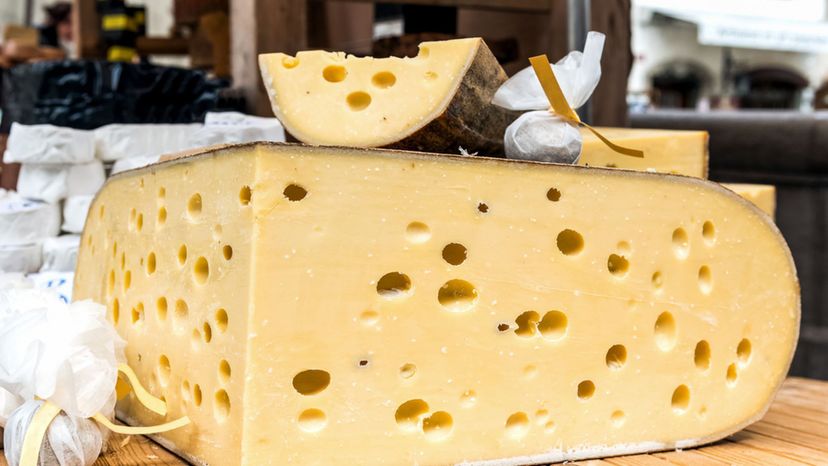
Emmental has walnut-sized holes. It is considered to be one of the most difficult cheeses to produce because of its complicated hole-forming fermentation process. The cheese tastes delicious with a glass of wine, like a Jura Blanc. This cheese is produced in the central cantons of Switzerland.
Advertisement
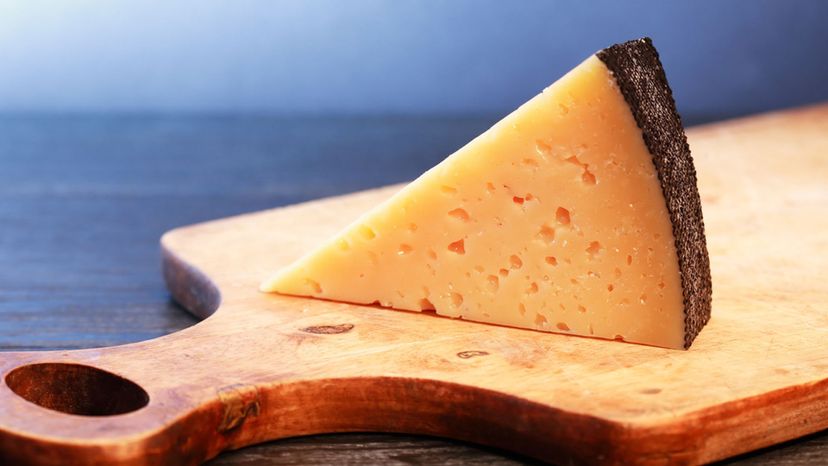
Gruyere originated in Switzerland. It is great for melting over pasta and for sandwiches.
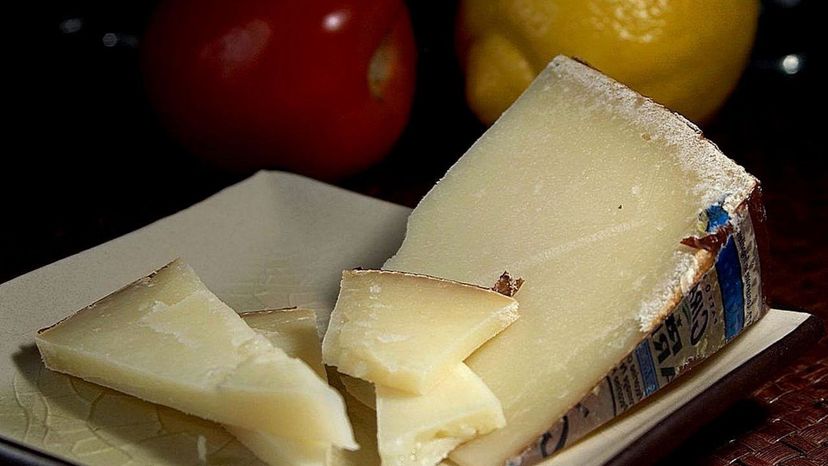
Sardo is an Argentinean semi-hard or hard, granular cheese made from cow's milk. Sardo is produced in 6-pound wheels. The whitish-yellow colored cheese adds to the flavor of pasta dishes, soups, or steamed vegetables. As it ripens, Sardo turns dry, crumbly, and suitable for grating.
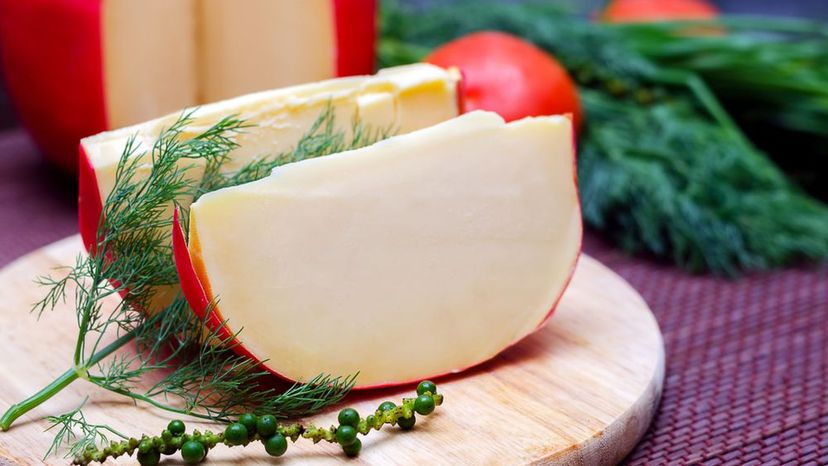
Some have said that the Edam cheese became even more popular in a time that ships used these cheeses as bullets for their cannons. True or not, Edam cheese is very strong, big, and round, and it has the same shape as a bullet. From the 14th until the 18th century, Edam cheese was the most popular cheese in the world, especially at sea and in the colonies far away.
Advertisement
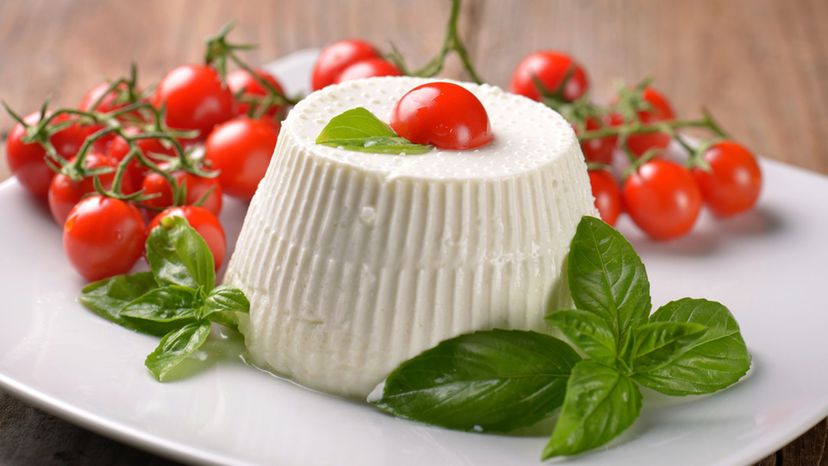
Ricotta is an Italian whey cheese made from sheep or cow, goat, or Italian water buffalo milk whey left over from the production of cheese. Like other whey cheeses, it is made by coagulating the proteins that remain after the casein has been used to make cheese, notably albumin and globulin.
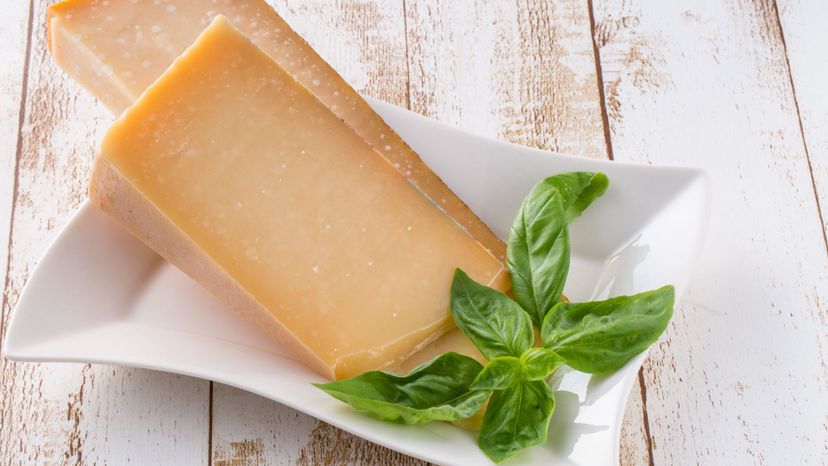
Comté, also called Gruyère de Comté, is a French cheese produced in the Jura Massif region of Eastern France. This hard mountain cheese is matured in the darkness of special caves, where the cheese gets its special taste, texture, and color.